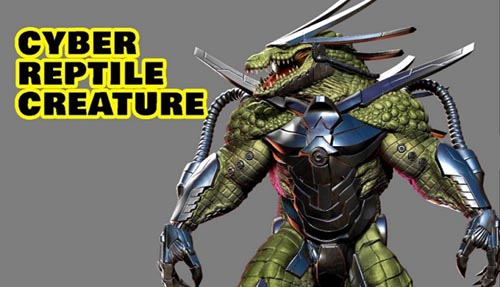FlippedNormals - Cyber Reptile Creature Course Volume 1 and 2
Related Articles
[Tutorials] Concepting Futuristic Cityscapes in Photoshop
On 26-Feb-16
by
Concepting Futuristic Cityscapes in Photoshop Video: AVC (.mp4) 1280?720 15fps...
Concepting Futuristic Cityscapes in Photoshop Video: AVC (.mp4) 1280?720 15fps...
[Tutorials] Concepting Futuristic Cityscapes in Photoshop
On 18-Jul-16
by
Concepting Futuristic Cityscapes in Photoshop Video: AVC (.mp4) 1280?720 15fps...
Concepting Futuristic Cityscapes in Photoshop Video: AVC (.mp4) 1280?720 15fps...
[repost] Mega Pack Interior Post Production Tutorial
On 06-May-16
by
Mega Pack Interior Post Production Tutorial mp4 | max | 8.06 GB...
Mega Pack Interior Post Production Tutorial mp4 | max | 8.06 GB...
Cyber Punk Mega Pack BUNDLE
On 01-May-24
by
PACK INCLUDES Hide Detail For Character Creator only: Character > Cloth...
PACK INCLUDES Hide Detail For Character Creator only: Character > Cloth...
Blendermarket - SimpleBake 5.1.2 and Grid Modeler v1.11.2 & v1.9.6
On 05-Jan-21
by
Blendermarket ? SimpleBake 5.1.2 and Grid Modeler v1.11.2 & v1.9.6...
Blendermarket ? SimpleBake 5.1.2 and Grid Modeler v1.11.2 & v1.9.6...
[3DMax] Gnomon Workshop Texture Library Bundle
On 02-Aug-15
by
Gnomon Workshop Texture Library Bundle JPEG | TIFF | Textures | 37.2 GB...
Gnomon Workshop Texture Library Bundle JPEG | TIFF | Textures | 37.2 GB...
[Tutorials] Uartsy - Character Development Master Class 2D & 3D Tools For Professional Pipelines
On 21-Apr-16
by
Uartsy - Character Development Master Class 2D & 3D Tools For Professional...
Uartsy - Character Development Master Class 2D & 3D Tools For Professional...

FlippedNormals ? Cyber Reptile Creature Course Volume 1 and 2
You must login to show this link. No account? Create One
Category: Other 3D
